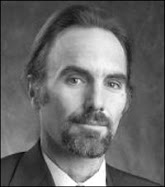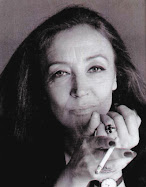Latin leftist and Hollywood elites turn blind eye to Venezuela's anti-government protests and mounting death toll
Originally published at FrontPage Magazine
By David Paulin
Massive and bloody anti-government protests have been roiling Venezuela for more than a month – provoked by an out-of-control murder rate, food shortages, and myriad instances of inept governance. But that didn't stop a rogues gallery of Latin leftists, including Cuban President Raul Castro, from turning up in Caracas to honor the late Hugo Chávez on the first anniversary of the Venezuelan leader's death.
Security forces and pro-government militias have responded with a vengeance against the protesters, leaving at least 21 dead and hundreds injured. Most were students.
The tear gas, rubber bullets and Chavista thugs on motorcycles, however, were out of sight and mind for Castro and fellow leftists, including Bolivian President Evo Morales and his Nicaraguan counterpart Daniel Ortega, among others. Like Castro, they enjoyed Chávez's oil largess over the years. Chávez had promoted himself as the savior of Venezuela's poor yet gave away billions of dollars of their oil wealth as a way to expand his influence and build alliances against the United States. The firebrand socialist, famous for his colorful anti-American broadsides, died a year ago of cancer, on March 5th, at age 58.
A couple of Hollywood heavy weights – director Oliver Stone and actor Danny Glover – lent their celebrity to Wednesday's ceremonies that included a military parade and civic events. Glover and Stone considered Chávez a friend and ideological soul-mate.
Chávez's hand-picked successor Nicolás Maduro – a 51-year-old former bus driver and union leader – led the ceremonies at “El Comandante's" sacred tomb – situated in a former military museum in Caracas that had served as the command center for a disorganized and bloody coup attempt that Lt. Colonel Hugo Chávez led on February 4, 1992, against a democratic government.
"Hugo Chávez was, without a doubt, the great leader who brought democracy. Never in history has there been a leader who so authentically loved the people of this country," Maduro told cheering Chávez loyalists. The ceremony featured goose-steeping soldiers, columns of tanks, and low-flying Russian Sukhoi jets.
A lavish spectacle, it came amid the economic and social chaos produced by what Chávez called “21st Century Socialism," and the bread-and-circuses populism is being deepened by Maduro in the oil-rich yet impoverished South American nation. Venezuela has long been a prize for Cuba, which sponsored leftist insurgences there in the 1960s. Now, socialist Venezuela has come to look more and more like Cuba, where basic goods also are scarce.
Ironically, Chávez had portrayed himself during his first presidential campaign as a moderate seeking a “third way” between capitalism and socialism. Claiming he'd traded the bullet for the ballet, he pledged to reverse declining living standards and root out Venezuela's rampant corruption. But months after his landslide election victory, he did an about face, praising Cuba's communism and forming a close friendship with Fidel Castro. Soon he was forming anti-American alliances with Middle Eastern strongmen such as Iraq's Saddam Hussein and Libya's Moammar Gadhafi. He nationalized large swaths of the economy in Venezuela; or to be precise: the Bolivarian Republic of Venezuela. Early into his first term, Chávez insisted on the name change as he pushed through a rewritten constitution in a Congress packed with his loyalists.
As for Venezuela's corruption, Chávez took it to new heights by allowing for the emergence of a new social class; what a Venezuelan journalist famously called the “Boliburguesía” -- a portmanteau of the word's Bolivarian and bourgeoisie. As has been reported often over the years, in print and broadcast media, they became rich overnight thanks to sweetheart contacts, cronyism, and corruption.
Glover, however, spoke only of Chávez as a man of the people to enthusiastic applause from Chávez loyalists. “His memory lives with us through the work that you do as citizens of this great nation,” he said.
Stone didn't attend but in an interview with a local news outlet talked wistfully of his departed friend Hugo. “I miss Chávez, miss his spirit and presence,” he said. Stone allowed his documentary film, “My Amigo Hugo,” to premier on Venezuela television. (The government required all television stations, both state-owned and private, to broadcast it.)
Social media, for its part, has helped organize the protests and shown the world the brutal handiwork of Venezuela's security forces. Twitter's SOSVenezuela has buzzed with photos claiming to show Cuban troops and military aircraft in Venezuela. Opposition protesters are convinced that Cubans are participating in the repressive crack-down against students. Over the years, Chávez invited many Cuban security agents and advisers into the country to help solidify his socialist rule.
Bread and circuses populism has a long history in Venezuela, as does statism and authoritarianism. But Chávez took these things to new heights. Now after 11 years of Chávez, and one year of Maduro who is doubling down on Chávez's policies, Venezuela is sliding toward basket case status. It has one of the world's worst murder rates. Shortages of basic goods -- including milk, medicines, and toilet paper – are common due to currency exchange and price controls that have made it unprofitable for business to import goods. And things are bound to get worse after recent government edicts requiring retailers and business to offer government-set “fair prices.” “Good Morning, Communism!” declared the respected newsletter VenEcomony after analyzing the impact of Maduro's recent “economic war” against supposedly bourgeoisie retailers and businessmen. Maduro has called the opposition “fascists” and dupes of “Yankee imperialists.”
Venezuela has become a polarized country divided into two ideological camps, thanks mainly to class-warrior Chávezm who repeatedly told poor Venezuelans that they were poor because others were rich. And last month, opposition leader Leopoldo López, a 42-year-old Harvard-educated politician and former mayor, was sent to jail on trumped up charges, including murder and inciting rioters, for having lent his support to the ongoing street protests.
“HE WHO tires, loses”: that was the slogan printed on a T-shirt worn by López when he was arrested among a sea of supporters. To Maduro's outrage, López had urged protesters to continue taking their grievances to the streets with peaceful protests; it's the only option they have left against an authoritarian government. Unarmed student demonstrators have been using two valuable weapons: twitter (#SOSVenezuea) and YouTube. Powerful videos like this have gone viral.
In last April's presidential election, Maduro prevailed over opposition leader Henrique Capriles, a state governor and former mayor, by a razor-thing 50.6 percent of the vote. Protesters rightly believe that Capriles ought to be leading the country in light of Chávez and Maduro's demagoguery and populism on top of illegal campaign spending and threats against state employees who supported opposition candidates.
Students come mainly from the middle-class and have been the backbone of the nationwide protest movement. It started in early February in San Cristóbal, a college town in the Andean mountains of 650,000, following the sexual assault of a female student. Initially, the protests were provoked by out-of-control crime. But as they spread to every major city in Venezuela, students added additional grievances to their manifesto – corruption, electrical blackouts, and other quality-of-life issues. Here and there, there have been reports in social media of the protests spreading to working-class areas that have been traditional Chávez strongholds.
But the hope of pulling off a Ukrainian -style revolution seems remote. The military is with Maduro, by all accounts. The students and other protesters are a minority; and so far their rage has been vented mainly against the symptoms of bread and circuses socialism – not against the system itself; and that system is without a doubt corrupt. It revolves in part around the popular belief, especially among the poor majority, that Venezuelans ought to be rich and entitled by dint of their oil wealth -- an impossibility in Venezuela today. It's a sirens song – the paradox of plenty, as some call it – that keeps free-market policies at bay, keeps power concentrated in the hands of a few, and lends itself to a mentality that blames others. In this culture, anti-Americanism flourishes. Free-market policies and investor-friendly laws, on the other hand, would create wealth – far more than could be pumped out of the ground.
The prophetic warning of Juan Pablo Pérez Alfonzo, a Venezuelan intellectual who was instrumental in founding OPEC, is often cited and worth quoting in respect to Venezuela's long decline and current crisis. “Ten years from now, twenty years from now, you will see: oil will bring us ruin… Oil is the Devil's excrement.”





No comments:
Post a Comment